We will concentrate now on Kali the Mother, because it shows a bizarre and astonishing combination of narrative methods, something that Nivedita hardly did either before or after. Published in 1900 this small, handy volume is nevertheless a procession of paintings. Words, employed like colours on canvas, reminding one of Lily Brescoe’s painting in Virginia Woolf’s acclaimed work To the Lighthouse, suggest a variety of moods and emotional intensity.

Nivedita quotes from D.G. Rossetti’s sonnet ‘Mary’s Girlhood’, beginning with ‘This is that blessed Mary, pre-elect/ God’s virgin’ in the first section of Kali The Mother. God’s eternal plan to redeem man speaks through this sonnet, and Rossetti places Mary historically in the distant past: ‘Gone is a great while.’ Nivedita quotes this, being fully aware of how Rossetti’s sonnet is a poetical illustration of his first oil painting called The Girlhood of Mary Virgin. William Blake, one of the early Romantics, did like this with many of his poems. Importantly, the second sonnet in ‘Mary’s Girlhood’ opens with the line ‘These are the symbols’ and functions as a programmatic guide to the picture’s iconography, emphasizing that the painting presents a significant moment, a moment that occurs not long before the Annunciation. Importantly, Nivedita’s first chapter in Kali The Mother is also called ‘Concerning Symbols’. It needs little effort now to realise how Nivedita’s rich knowledge of painting enabled her to impress the leading practicing artists in India— Nandalal Bose, Abanindra Nath Tagore, Asit Halder, and others.
This story is from the August 2018 edition of The Vedanta Kesari.
Start your 7-day Magzter GOLD free trial to access thousands of curated premium stories, and 8,500+ magazines and newspapers.
Already a subscriber ? Sign In
This story is from the August 2018 edition of The Vedanta Kesari.
Start your 7-day Magzter GOLD free trial to access thousands of curated premium stories, and 8,500+ magazines and newspapers.
Already a subscriber? Sign In

Panchakroshi Parikrama of Varanasi
At the snow-capped Kailas, the Divine Lord Shiva was seated with Mother Parvati.
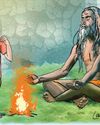
Gadai and the Monks
A fictional narrative based on incidents from the childhood of Sri Ramakrishna.

Chintayo momo maanosho Hori...
Sri Ramakrishna loved songs. There probably was no normal day when he did not sing some songs.
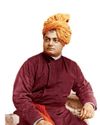
The Vedanta Vaccine
The world is still struggling under the impact of the pandemic due to Covid-19 for the last three years.
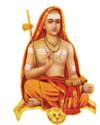
Chandrakirti's Chariot: Self in Madhyamaka Buddhism and Advaita Vedanta
The goal in Advaita Vedanta is the cessation of suffering and the attainment of true fulfillment. Suffering, according to this school, is due to ignorance of the true nature of the self and consequent erroneous identification with the body-mind.

Reminiscences of Sargachhi
Question: यद्यदाचरतत श्रेष्ठसतत्तदरेवरेतरो जनिः। ‘Whatever a superior person does, others do the same thing!’ (Gita 3:21) – What does this statement mean?
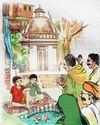
THE AUTUMN FESTIVAL
A fictional narrative based on incidents from the childhood of Sri Ramakrishna.
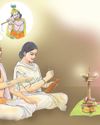
Bards of Guruvayur: Vilwamangalam II
Saints of India
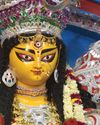
In the Universal Mother’s Divine Playground
Swami Vivekananda never taught the worship of Mother Kali. In a letter to Mary Hale he writes, “Kali worship is not a necessary step in any religion.
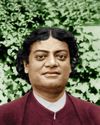
Swami Vivekananda: A Sportsman Par Excellence
In various books and articles, Swami Vivekananda has been called a spiritual leader, a prophet, a patriot, a social reformer, a philosopher, a yogi, a writer, an orator, an educationist, a musician, and so on.